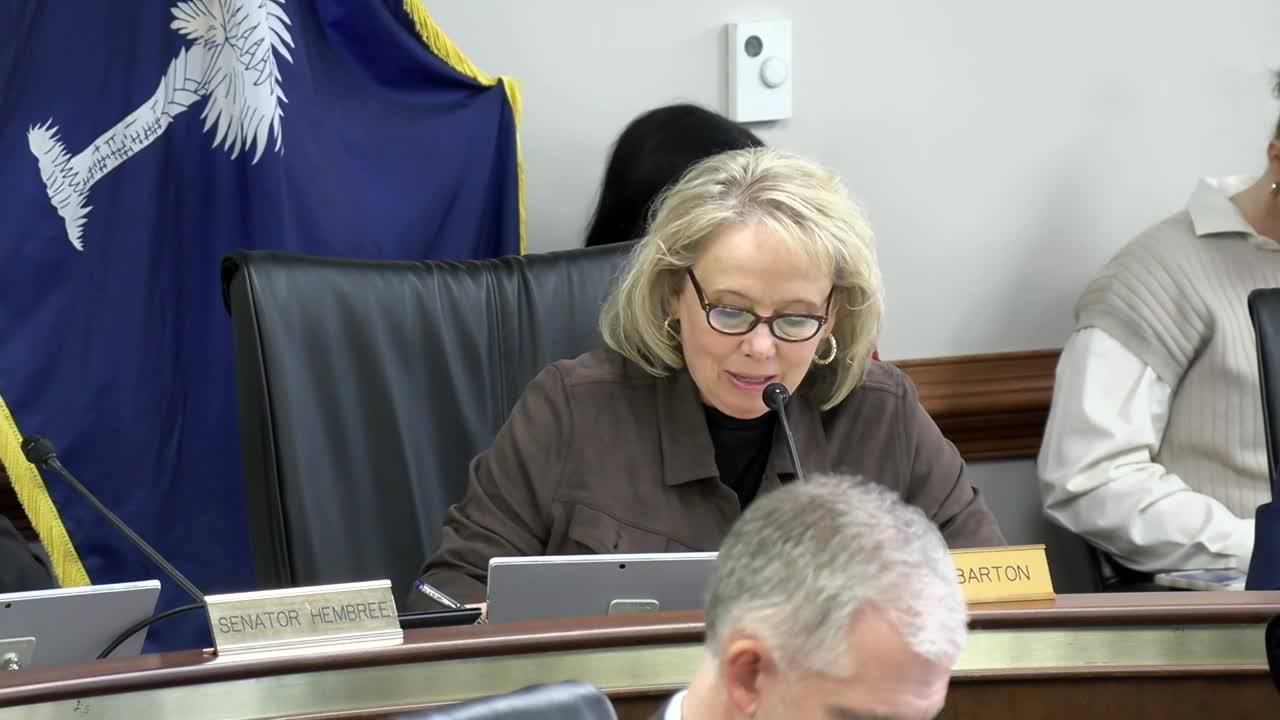Committee carries over bill clarifying expulsions for firearms and proposed language to treat threats as expulsable offenses
Get AI-powered insights, summaries, and transcripts
Subscribe
Summary
Senate Bill 416, which would clarify when boards must impose one‑year expulsions for students who bring firearms to school and would tighten procedures for hearings and transfers, was carried over after extended debate and possible new language to add threats-by‑communication to the firearm expulsion scheme.
The Senate Education Committee carried over Senate Bill 416 after lengthy discussion about how courts and districts should treat firearms on school property and whether certain threats conveyed by letter, electronic communication or verbally should be treated under a similar expulsion framework.
Staff said the bill would clarify current law by distinguishing expulsions and suspensions and by specifying that expulsions for bringing a firearm to school should be for one year from the date of the incident; the bill would require that the district board of trustees hold the hearing and would prohibit the superintendent from unilaterally reducing the board’s action for this offense. The subcommittee amendment limits certain prohibitions to the duration of an expulsion or suspension and would allow transfers within a district in lieu of suspension or expulsion after a conference with parents and notification of the principal in the receiving school.
Committee members discussed two additional sets of draft language provided to the full committee. One set would create a third category addressing ‘‘knowingly and willfully’’ conveyed threats of bodily harm by means of a weapon through letters, documents or electronic communications and would set out factors for boards to consider. The Palmetto State Teachers Association had proposed language of that type, staff said.
Senators debated whether such threats — for example, a student who calls in a bomb threat to disrupt a test — should be treated on par with bringing a firearm. Supporters argued the disruptions and potential harms are similar and that imposing a clear, strict consequence could deter hoaxes and threats. Others warned about strict‑liability approaches and urged careful drafting to preserve discretion and appeals and to differentiate intent, context and available evidence.
Members also discussed evidentiary and scope questions — whether the language should expressly cover verbal threats in addition to written and electronic statements, and how boards should weigh investigative findings (for example, laptop evidence showing steps taken to build a weapon). Several senators said they want staff to refine definitions and to develop a version that preserves a board’s ability to consider mitigating information.
Given the complexity and the policy trade‑offs, the committee carried the bill over so staff can produce revised text for future consideration.
